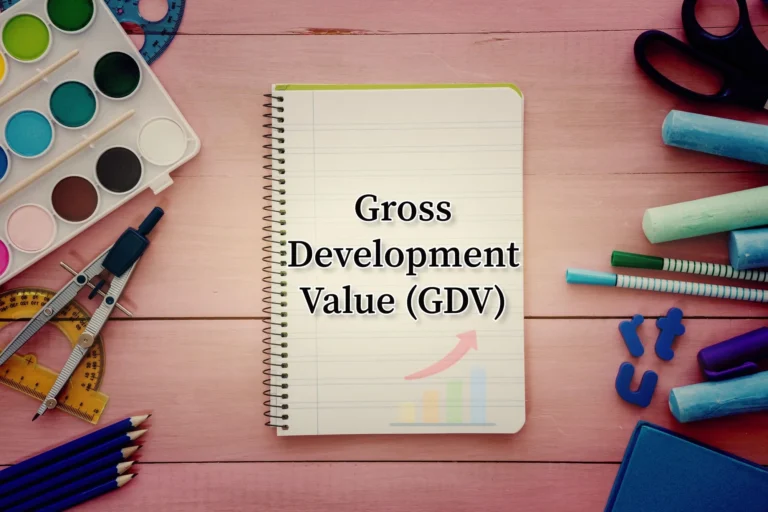In a recent legal battle between Sonder Europe Limited (Sonder) and The Commissioners for His Majesty’s Revenue and Customs (HMRC), the focus was on the Tour Operators Margin Scheme (TOMS), a special TOMS VAT scheme applicable to specific services provided by travel agents and tour operators.
The dispute arose when HMRC challenged Sonder’s VAT treatment, leading to a significant sum of £252,229.29 being deemed chargeable.
Background
Sonder, a provider of accommodation in the UK to both corporate and leisure traveller’s, operated through self-contained apartments leased from third-party landlords.
These accommodations were sublet to traveller’s for varying periods. Sonder had accounted for VAT under the TOMS for VAT periods ending in October 2017, January 2018, and April 2018. However, in 2019, HMRC contested this classification, asserting that TOMS did not apply to Sonder’s supplies.
The Core Issue
The central question in this legal dispute was whether Sonder’s supplies fell within the scope of the TOMS. The decision revolved around interpreting the legislative framework, particularly the VAT Act 1994 (VATA) and the TOMS Order.
Legislative Framework
The analysis began with the consideration of the EU legislation, specifically Articles 306 to 310 of the Principal VAT Directive (PVD). These articles outlined the EU special scheme, which applied to transactions by travel agents or tour operators dealing directly with customers, using supplies from other taxable persons for the provision of travel facilities, and where those supplies directly benefited the traveller.

Key Elements of EU Special Scheme
- Dealing in Own Name: Travel agents and tour operators must deal with customers in their own name.
- Use of Supplies: They must use supplies of goods or services provided by other taxable persons.
- Travel Facilities: The services provided must be in the provision of travel facilities.
- Direct Benefit: Supplies should be for the direct benefit of the traveller.
Implementation in UK Law
The UK legislation relevant to the Tour Operators Margin Scheme (TOMS) is found in Section 53 of the VAT Act 1994 (VATA) and the TOMS Order. Section 53(1) of the VATA grants the Treasury the authority to modify the application of the Act concerning supplies by tour operators.
Notably, Section 53(3) broadens the definition of “tour operator” to include a travel agent acting as principal and any entity providing services commonly offered by tour operators or travel agents for the benefit of traveller’s.
The TOMS Order, effective from April 1, 1988, specifically addresses supplies by tour operators. Articles 2 and 3 of the Order define the applicable supplies as those benefiting traveller’s.
A ‘designated travel service,’ as per Article 3(1), involves goods or services acquired for business purposes and supplied to traveller’s without material alteration or further processing. However, a few potential inconsistencies with EU legislation are noted.
Issues and Interpretations
The primary issues to establish Sonder’s eligibility under TOMS are:
- Confirmation that Sonder qualifies as a tour operator.
- Demonstration that Sonder’s supplies meet the criteria of designated travel services under Article 3(1) of the TOMS Order.
Sonder did not claim to be a tour operator or travel agent, so it must prove that its services align with those typically offered by tour operators or travel agents for the benefit of traveller’s.
Evidence and Business Operations
Sonder’s evidence, presented through witness statements and contractual documents, highlighted its business model. Notably:
- Sonder, as a UK-based company, became VAT registered in September 2017.
- Sonder aimed to revolutionise the hospitality industry using technology, emphasising a superior traveller experience through the Sonder App.
- Sonder leased individual apartments from landlords, covering both furnished and unfurnished accommodations.
- Sonder’s agreements with landlords prohibited significant alterations to the properties, and maintenance responsibilities rested with Sonder for internal aspects.
- Repairs undertaken by Sonder were mostly superficial and cosmetic, with the landlords responsible for structural and external repairs.
Supplies Made by Sonder to Travellers
Sonder, despite not marketing itself as a tour operator or travel agent, referred to itself as a “hospitality company” in corporate presentations. It exclusively offered self-catering accommodation, not providing transport services or the option to book travel such as flights. Travellers booked apartments directly on Sonder’s website, and check-in processes were conducted online.
Sonder did not maintain on-site staff, outsourcing housekeeping services. Cleaning services were provided before a traveller’s arrival, with in-stay cleaning available upon request and payment by the traveller.

The apartments were equipped with typical features like kitchens, bathrooms, living rooms, and bedrooms, varying in furnishings based on size and layout. Sonder did not offer food or beverages, except for minimal items like tea and coffee.
Travellers could contact Sonder’s 24-hour Hospitality Team for assistance, but interaction during stays was generally limited. The checkout process was straightforward, with traveller’s simply leaving the apartment.
Delve into our comprehensive breakdown of ” VAT Calculation under the Tour Operators’ Margin Scheme “. Read now to navigate the complexities and optimise your VAT strategy.
Interpretation of the TOMS under various Case Law
To interpret the Tour Operators Margin Scheme (TOMS) Order consistently with the EU VAT Directive (PVD), the case law of the Court of Justice of the European Union (CJEU) was considered. The EU special scheme for travel agents, governed by Articles 306 to 310 of the PVD, aims to simplify VAT rules for businesses providing multiple services, especially across different Member States.
In Van Ginkel, the CJEU emphasised that the special scheme adapts Value Added Service (VAT) rules to accommodate the diverse nature of services offered by travel agents, including accommodation. The case clarified that the travel agent need not arrange transport to and from accommodation for the special scheme to apply.
Madgett and Baldwin reinforced that the special scheme applies to services within a single Member State and extends to traders engaged in identical transactions, even if not traditional travel agents or tour operators.
ISt highlighted that the special scheme applies to persons providing services identical or comparable to travel agents, irrespective of their formal classification.
In Alpenchalets, the CJEU confirmed that the supply of accommodation alone falls within the special scheme, emphasising the need to cover various types of holidays and services. The ruling clarified that the special scheme applies to the mere supply of holiday accommodation by a travel agent.
Submissions
Sonder claimed to be a tour operator akin to those in Van Ginkel and Alpenchalets, purchasing accommodation from landlords and providing it to traveller’s.
HMRC acknowledged that a single supply of bought-in holiday accommodation could qualify under the TOMS but argued that leasing exempt residential accommodation and subletting it did not fall under the scheme.
HMRC contended that Sonder, by leasing and providing accommodation, resembled a hotelier more than a tour operator
Decision
To arrive at the decision, following points were considered:
- Nature of Acquired Accommodation: Mr. Macnab argued that Sonder’s leasing of apartments did not constitute “bought-in” holiday accommodation. The judge disagreed, stating that the leased apartments were acquired for the purpose of Sonder’s business, meeting the TOMS VAT scheme criteria.
- Material Alteration or Further Processing: HMRC argued that Sonder materially altered the landlord’s supply from exempt land to standard-rated hotel accommodation. The judge disagreed, asserting that changes made by Sonder, such as furnishing, were cosmetic and did not fundamentally alter the nature of the accommodation.
- Interpretation of TOMS Requirements: The judge rejected HMRC’s interpretation that a tour operator must buy-in identical accommodation to what it provides to traveller’s. The Judge emphasised that the TOMS only requires that acquired goods or services be supplied for the benefit of traveller’s without material alteration.
- Definition of Tour Operator: Concluded that Sonder, providing short-term accommodation to travellers, falls within the broad definition of a tour operator under section 53(3) of VATA. Affirmed that the furnished apartments provided by Sonder meet the criteria for designated travel services within the TOMS Order.
Conclusion
Ultimately, the court rejected HMRC’s contentions and affirmed Sonder’s status as a tour operator under TOMS, concluding that the leased apartments met the criteria for designated travel services.
This decision carries broader implications for businesses operating in the travel and accommodation sector, emphasising the flexibility and inclusivity of the TOMS framework, as well as the significance of the specific characteristics of acquired goods or services in determining VAT treatment.









